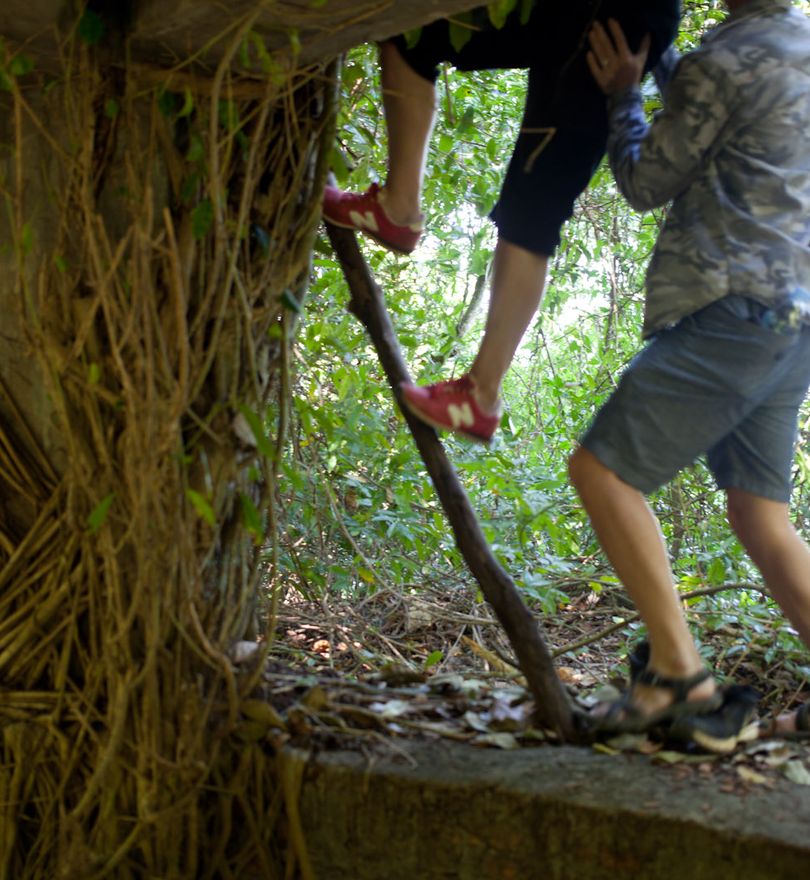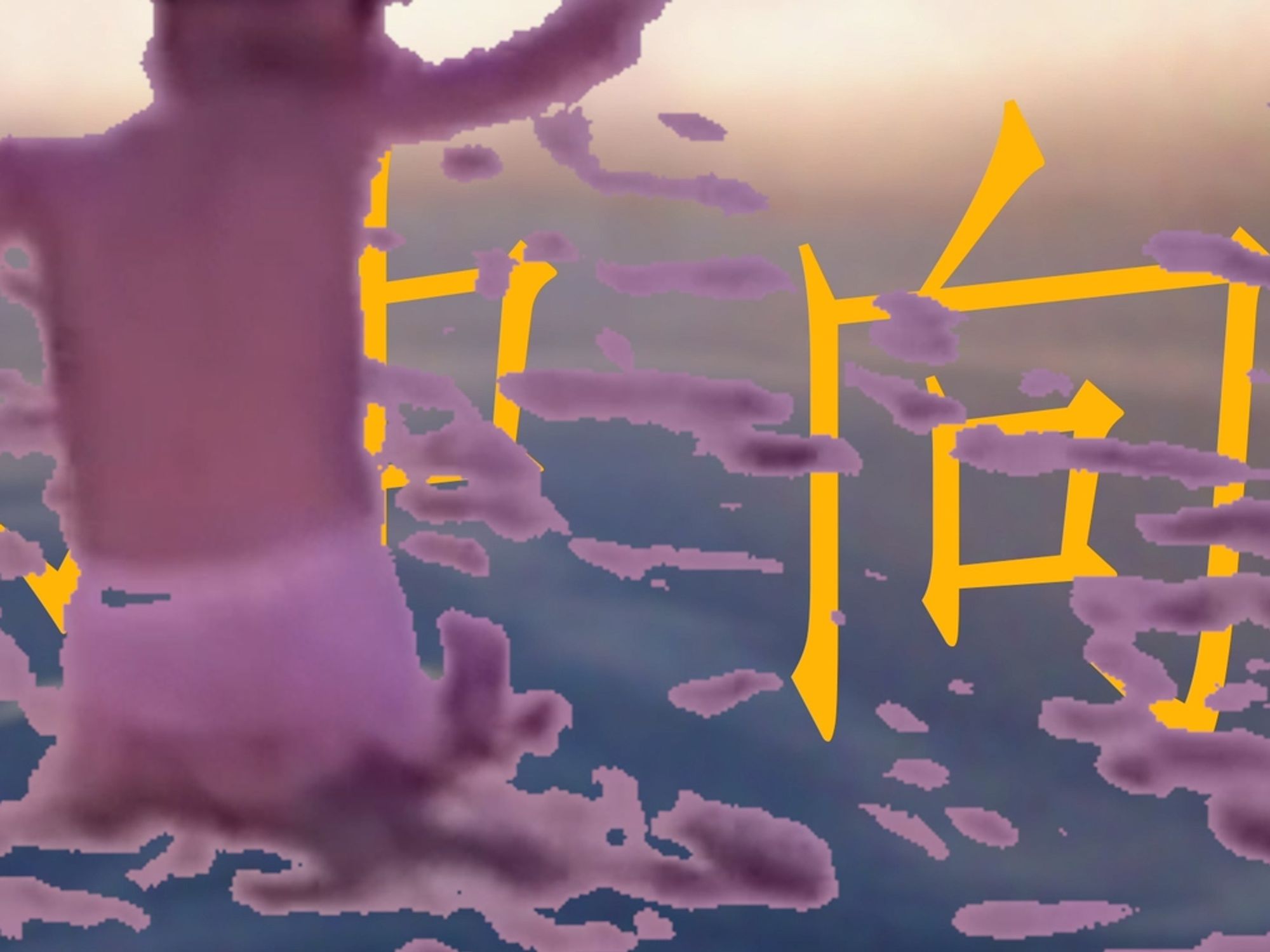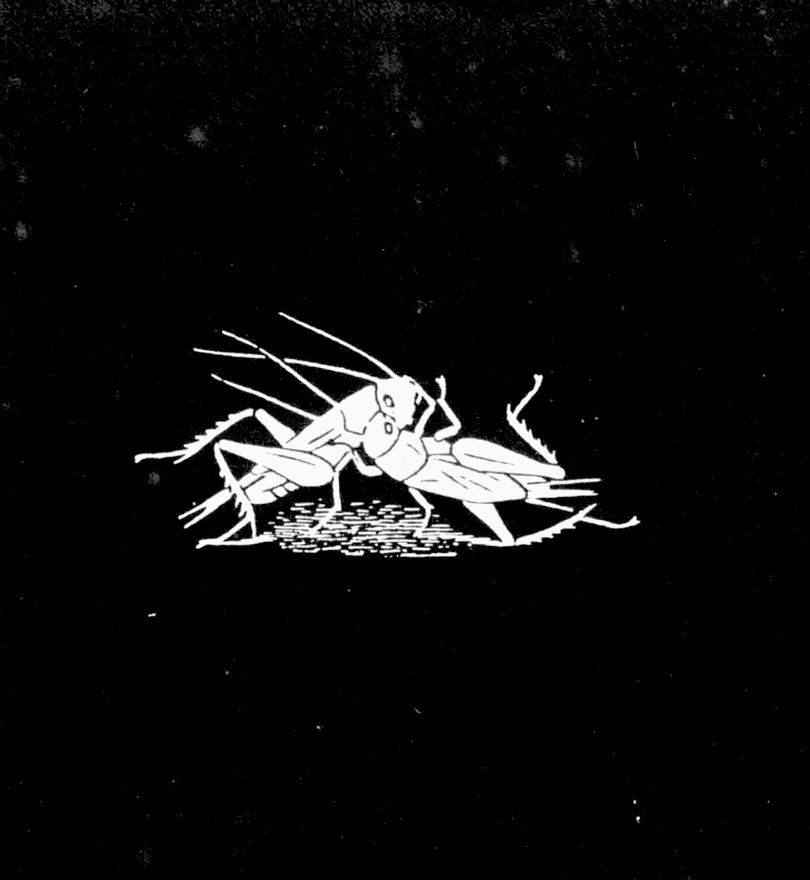
Art can cross borders even when artists can’t. Film programmer Vicci Ho unravels the increasingly perilous stakes of making films in Hong Kong as post-handover security laws constrict freedom of expression.
Last year, as I was scouting for films for Whānau Mārama New Zealand International Film Festival, I was determined to find a film that would provide an update on Hong Kong since the 2019 protests. I asked contacts in Hong Kong if anyone had something ready, and one told me the film they’d worked on should be available. I eventually saw the film in question, and when I checked the end credits, my contact’s name was predictably nowhere to be found: they were amongst the dozens of crew listed as ‘anonymous’.
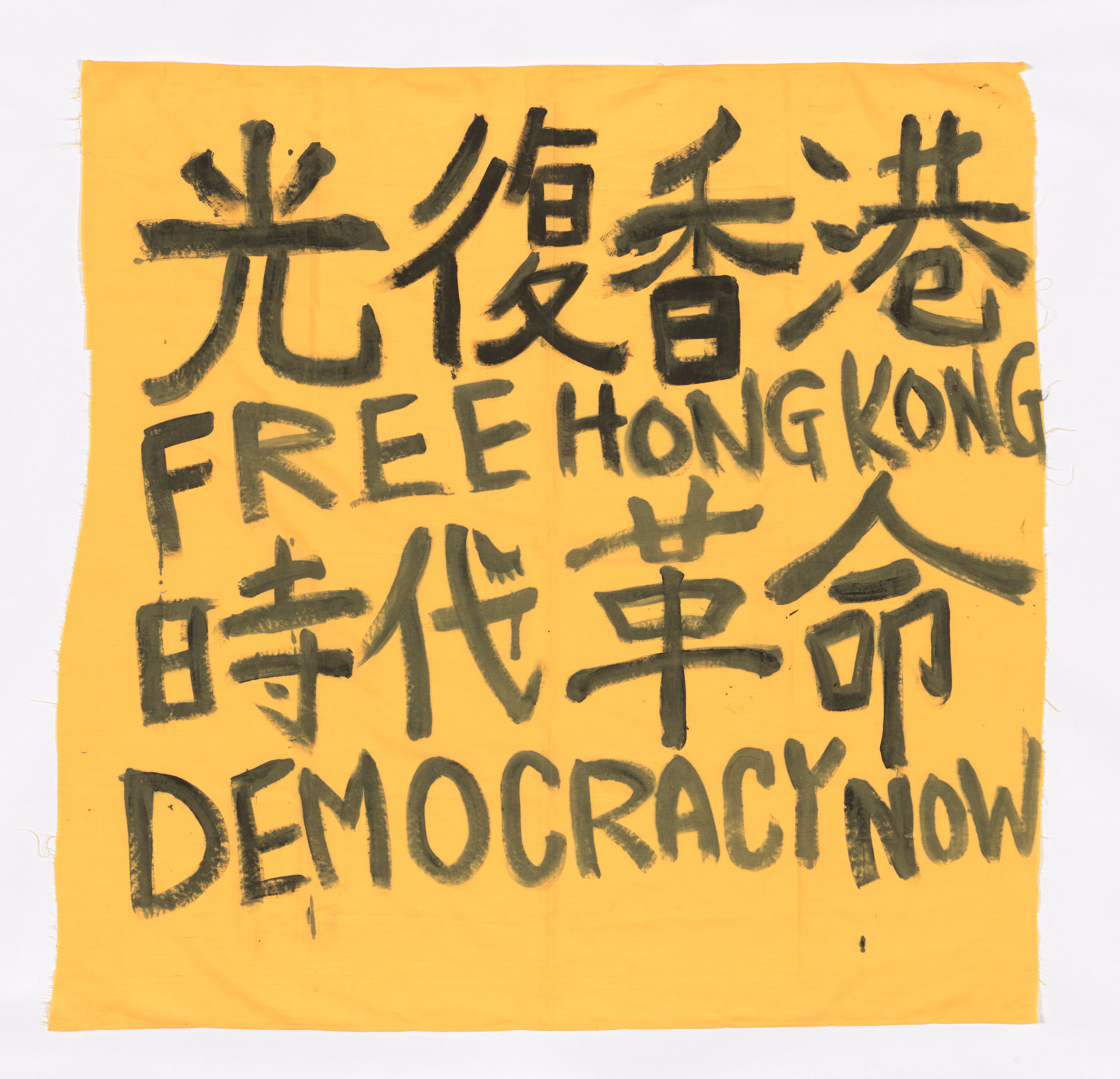
Anonymous, 'Free Hong Kong, Democracy Now' protest banner, 2019, Auckland. Te Papa (GH018370)
Perhaps it is selfish of me to want to ensure the story of my home’s increasing oppression under Communist China is not forgotten by the world. After all, given the seemingly endless cycle of doom and oppression all around the world, a crushed protest movement with a minimal death toll is perhaps, to put it bluntly, not a priority. However, as a Hongkonger, I know things have become worse since the world stopped paying attention, and I feel I have a responsibility to use my platform, however small it is, to do SOMETHING.
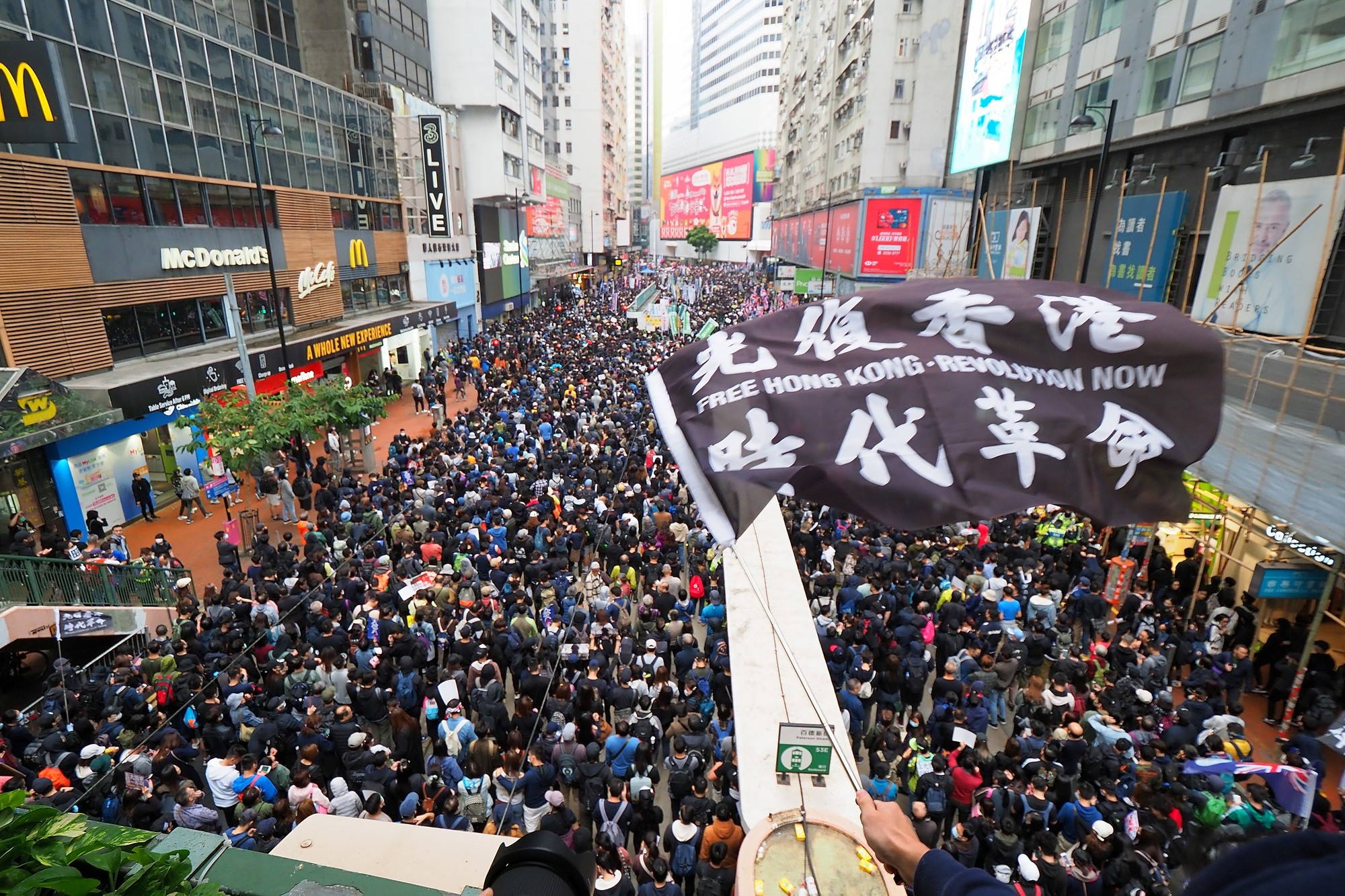
Free Hong Kong protest, 1 January 2020
Photo by Etan Liam
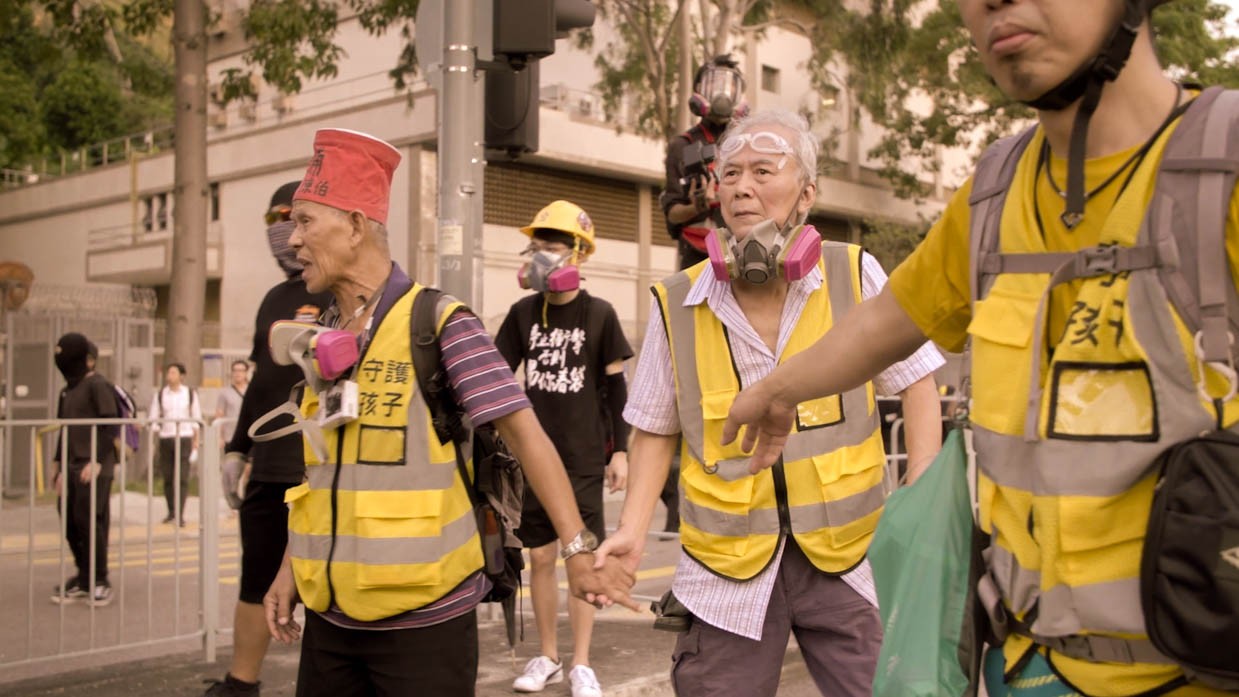
When a City Rises (still), 2021
Since the introduction of the NSL, when I reach out to Hongkongers who are connected with politically sensitive films, it is via encrypted apps such as Signal. We must now consider whether pursuing certain works could put the filmmakers at risk. There are certainly films that have been released since the NSL: Kiwi Chow’s 2021 documentary Revolution of Our Times played the Cannes Film Festival; Chan Tze-woon’s Blue Island (2022), a melancholic hybrid documentary on the history of resistance in Hong Kong, had a good festival run. There are also others, such as When a City Rises, which I screened at NZIFF in 2021 and was made by a film collective using pseudonyms. But while Kiwi and Tze-woon are still living freely in Hong Kong, how can I be sure others will be safe?
I’ve also wondered if I can ever return to Hong Kong. While I do not consider myself an activist, I am a Hongkonger who has programmed films that highlight the protests, I have given an interview talking about the increased oppression in Hong Kong … in other words, I have done more than enough to land a sedition charge in post-NSL Hong Kong. While an industry friend has jokingly said, ‘You’ll be fine, you’re not famous enough to be arrested’ (which is 100% accurate), I also can’t be sure that I would NOT be. This is the insidious power of this law — with no clear definition of what is and what isn’t illegal, it is an extremely effective tool to ensure most people will not speak up.
... when I reach out to Hongkongers who are connected with politically sensitive films, it is via encrypted apps such as Signal.
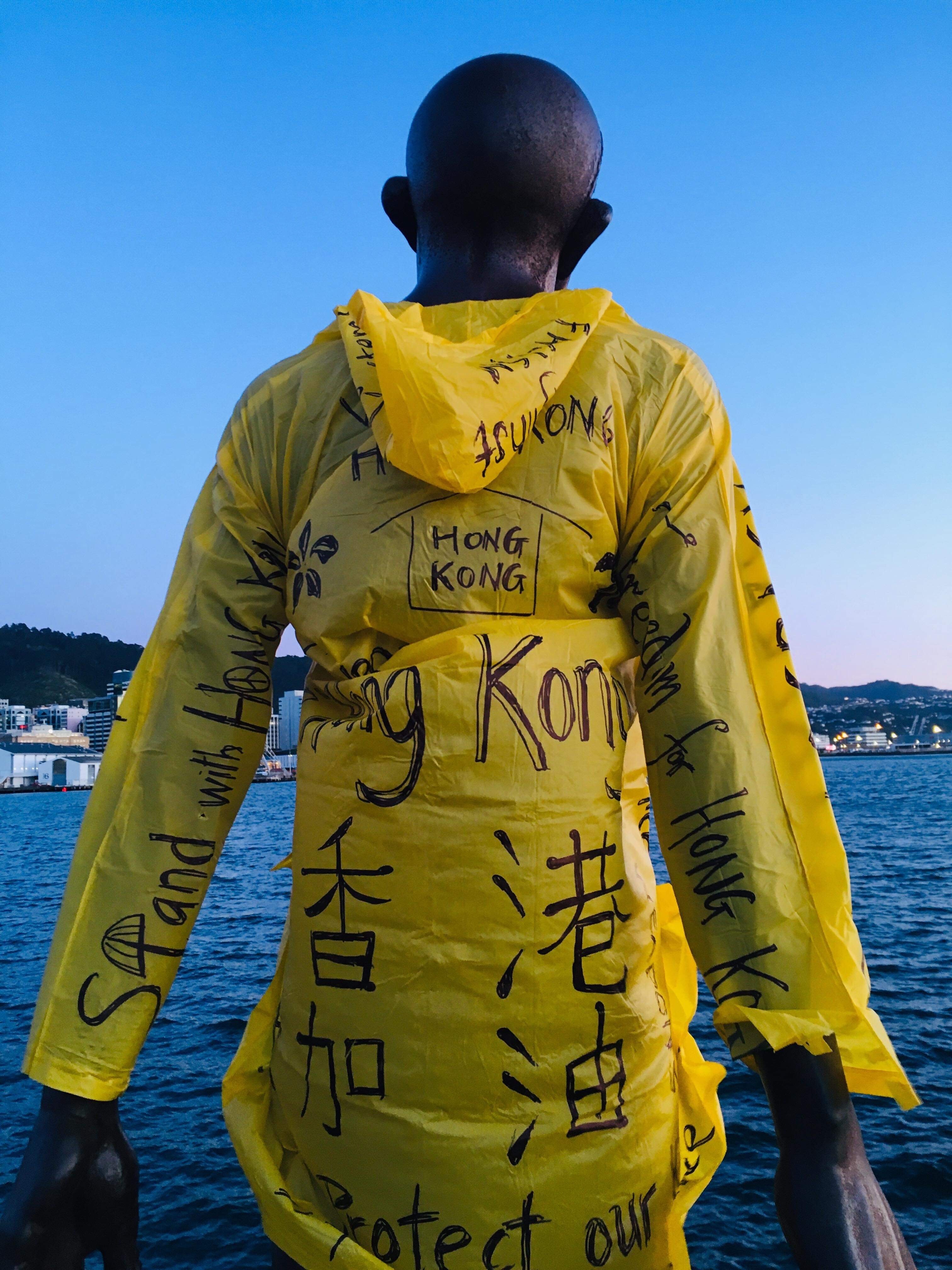
Anonymous, Solace in the Wind statue adorned with raincoat featuring messages of support for Hong Kong protests, 2019, Wellington. Te Papa (O.051556)
I am still living free in Aotearoa. I can continue to show films about Hong Kong protests, share stories of the latest round of oppression on social media, or write this piece without fear of arrest. However, I am concerned about whether the continuation of Hong Kong’s government crackdown will make it increasingly difficult for such works to be produced. There are filmmakers outside of Hong Kong that have released films over the past year — such as Joe Piscatella’s Who’s Afraid of Nathan Law?, Lynn Lee and James Leong’s If We Burn, and San San F Young’s Hong Kong Mixtape (which screened at NZIFF 2023) — but would they risk returning to Hong Kong now? Will people in Hong Kong be willing to risk arrest to continue helping filmmakers produce films, considering the government has implemented another security law that erodes even more civil liberties?
With funding for the arts becoming harder and harder to come by, will organisations in Aotearoa feel pressure to self-censor to secure sponsorship from more oppressive governments and their cultural-organisation fronts? It’s hard to imagine the Hong Kong Economic and Trade Office would be willing to provide funding, as they once did, to film festivals showing films sympathetic to the political opposition. Perhaps I am being too pessimistic, but witnessing the rise of authoritarian movements globally, the current political landscape of Aotearoa, and mass media layoffs in recent months, it is hard not to think of the worst-case scenarios.
Until the worst-case scenario happens, however, I am going to continue doing what I can to ensure Aotearoa does not forget what is happening to Hong Kong. It is important to keep showcasing filmmakers continuing to tell their stories and, most importantly, to ensure that Hongkongers in Aotearoa know they are not forgotten.
... will organisations in Aotearoa feel pressure to self-censor to secure sponsorship from more oppressive governments and their cultural-organisation fronts?
In 2021, in an effort to ensure that When a City Rises is seen by Hongkongers as well as the usual film festival crowd, I cold-messaged various Hong Kong diaspora groups on social media to ensure they knew the film was playing. After one of the screenings, someone posted a photo in one of the diaspora groups. Taken outside the screening, they were in full black clothing, a mask hiding their face, holding a flag with the 2019 protest slogan ‘光復香港,時代革命 / Free Hong Kong, Revolution Now’.
We might not know each other, but through films about Hong Kong shown in our adopted home we connect, knowing we have each other, and perhaps one day we will be free to return to a Hong Kong we hope it can become.
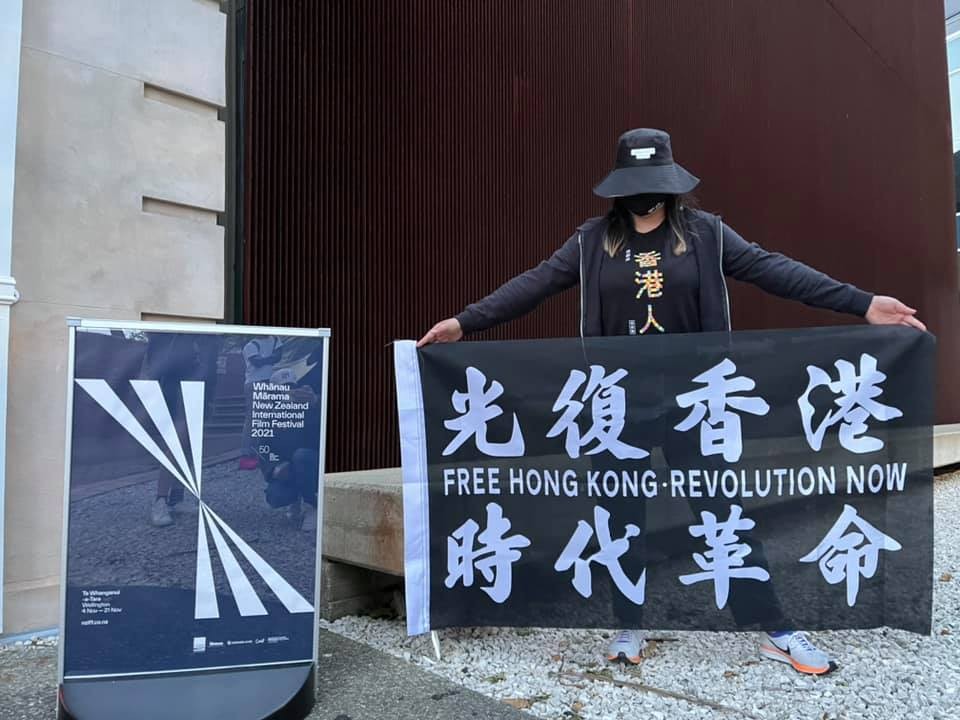
A member of the Facebook group We are Kiwi Hong Kongers 香港逃犯條例修訂草案紐西蘭關注組 attending a screening of When A City Rises at Whānau Marama New Zealand International Film Festival, 7 November 2021.


